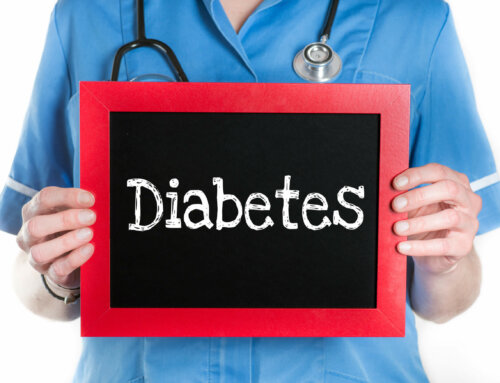Did you know people with diabetes have a reduced immune system? This can increase the risk for illness. Here are my cold and flu season tips which are good for anyone but especially for people with diabetes.
What You Need to Know About The Flu
- According to the Centers for Disease Control (CDC), people with diabetes who get the flu are 6 times more likely to be hospitalized with complications. People with diabetes are 3-4 times more likely to die from the flu and pneumonia.
- Some people may develop the flu despite getting a flu shot, but not because of the vaccine. It is not recommended that people with diabetes use the flu nasal spray mist which is a diluted live virus.
- It is recommended that every person with diabetes get the pneumonia vaccine since it can prevent 80% of the pneumonia cases and related complications.
- You can get both pneumonia and flu vaccines at the same time but have them given to you in different arms.
- People allergic to eggs or who have Guillian Barre Syndrome should NOT get the flu shot.
- The best time to get the flu shot is in October or November.
The Differences Between a Cold and the Flu
| Cold | Flu |
|---|---|
| Slow onset and is caused by a virus (versus a bacterial infection that may feel like a cold). | Sudden onset and is caused by virus. Also increases your chances of a bacterial illness like sinusitis, bronchitis or pneumonia. |
| Typical symptoms: sneezing, stuffy or runny nose, clear secretions, dry cough, no fever, sore throat and no body aches. | Typical symptoms: watery eyes, stuffy running nose, flush skin, fever, body aches, chills, muscle aches, weakness and extreme fatigue. |
| A cold generally does not affect blood sugar. | Very possible for the flu to have an effect on blood sugar due to the stress of the illness. |
What to Do if You Get The Flu
- Rest.
- Hydrate with sugar free liquids about every hour.
- Monitor your blood sugar every 4 hours. If below 60 mg/dL or over 240 mg/dL, call your doctor.
- Monitor temperature. Adults with a temperature above 101 should call their doctor.
- Check for ketones when your blood sugar rises above 240 mg/dL. Moderate to large amount of ketones, call your doctor. If small amount of ketones, drink extra sugar-free liquids.
- Wash hands often.
- If vomiting or having diarrhea, add some sodium from soup or consommé about every 3 hours.
- Keep taking your medications as directed even if you are not eating as your blood sugar will possibly be elevated. Check with your physician if you are on insulin as it may need to be increased.
- Call your doctor if you lose more than 5 pounds. That may indicate that your blood sugar is out of control.
- Call your doctor if you have trouble breathing or if you start to feel disoriented.
- Change your tooth brush when you are feeling better to avoid potential infection or re-infection.
What To Do If You Get A Cold
- Rest.
- Hydrate.
- Consider taking zinc supplements of 50 mg every 8 hours for 3-4 days. If you prefer zinc lozenges, choose the sugar free kind.
- Consider taking vitamin C supplements up to 1000 mg a day. Watch out for stomach upset which can happen.
- Consider taking Echinacea if you have a cold to help support your immune system.
Preventing Illness
Of course, preventing illness is always best. In addition to getting the flu shot or pneumonia vaccine, here are ways to help keep your immune system healthy and avoid illness during this season of increased travel and social interaction:
- Get plenty of rest.
- Stay hydrated.
- Wash hands.
- Carry sanitizer.
- Avoid contact with objects such as door knobs, computer key boards, telephones, grocery carts without using sanitizer.
- Consider supplementation such as Vitamin D (D3 cholecalciferol) and probiotics to support your immune system.
- Consider using a Neti pot which will help keep your nasal passages clear.
I wish you a healthy and happy winter season,
Nurse Robbie
Have a question or comment? Then post below, no registration required. I would love to hear from you!
NOTE: Consult your doctor first to make sure my recommendations fit your special health needs.







Leave A Comment